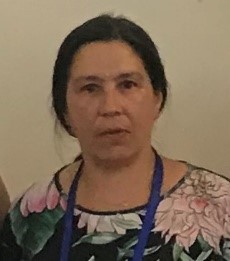Energy Efficiency and Circular Economy: Strategies towards Sustainability
A special issue of Sustainability (ISSN 2071-1050). This special issue belongs to the section "Energy Sustainability".
Deadline for manuscript submissions: 31 July 2024 | Viewed by 1909
Special Issue Editor
Interests: sustainability; environment; energy; LCA; optimization
Special Issues, Collections and Topics in MDPI journals
Special Issue Information
Dear Colleagues,
Energy is used in every sector of human activity and is crucial for attaining quality of life and sustainability. Energy systems are still based on fossil fuels, which cause pollution problems, climate change, and health problems, reducing quality of life. Additionally, they are unevenly distributed which makes countries more externally energy-dependent. Two measures are being implemented: the use of renewable resources and energy efficiency. Improving energy efficiency can be very important in order to reduce energy consumption. On the other hand, the circular economy intends to eliminate waste and pollution by closing loops and using specific strategies (such as sustainable design, industrial symbiosis, etc.). The circulation of products and materials at their highest value is prioritized in order to reduce, for example, the need for virgin materials, the pressure on natural resources, and the contribution to prices’ stability. Works on these two areas can be very important since they are transversal and can have a huge potential in significantly impacting society and increasing sustainability.
- Energy efficiency in households
- Energy efficiency in industry (e.g., textile, etc.)
- Energy efficiency in waste management/treatment
- Energy efficiency in water management/treatment
- Energy efficiency in supply chains
- Energy efficiency and renewables
- Energy efficiency and environment
- Energy efficiency and sustainability
- Circular economy and the water sector
- Circular economy and industry
- Circular economy and regulation
- Circular economy and wastes
- Circular economy and resources
I look forward to receiving your contributions.
Prof. Dr. Florinda Martins
Guest Editor
Manuscript Submission Information
Manuscripts should be submitted online at www.mdpi.com by registering and logging in to this website. Once you are registered, click here to go to the submission form. Manuscripts can be submitted until the deadline. All submissions that pass pre-check are peer-reviewed. Accepted papers will be published continuously in the journal (as soon as accepted) and will be listed together on the special issue website. Research articles, review articles as well as short communications are invited. For planned papers, a title and short abstract (about 100 words) can be sent to the Editorial Office for announcement on this website.
Submitted manuscripts should not have been published previously, nor be under consideration for publication elsewhere (except conference proceedings papers). All manuscripts are thoroughly refereed through a single-blind peer-review process. A guide for authors and other relevant information for submission of manuscripts is available on the Instructions for Authors page. Sustainability is an international peer-reviewed open access semimonthly journal published by MDPI.
Please visit the Instructions for Authors page before submitting a manuscript. The Article Processing Charge (APC) for publication in this open access journal is 2400 CHF (Swiss Francs). Submitted papers should be well formatted and use good English. Authors may use MDPI's English editing service prior to publication or during author revisions.
Keywords
- energy efficiency
- circular economy
- sustainability
- renewables
- resources





